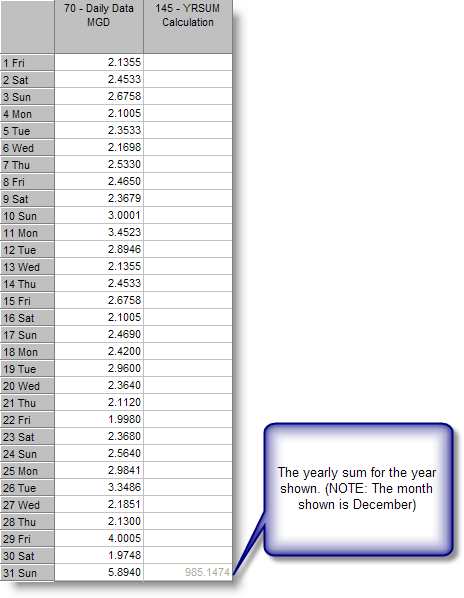YRSUM returns the yearly sum of a specified variable, Cx, and records the value on the last day of the year.
SYNTAX:
YRSUM(Cx, optional Time Increment)
where :
Cx is a conditional variable x
Time Increment Optional - specifies the source variables (Cx) Frequency when the Source Variable (CX) and target variable's (i.e. the variable being calculated) frequencies do not match.
NOTES:
YRSUM resets to zero (0) at the beginning of each year.
The variable to be summed must be specified as a Conditional Variable (use "C" instead of "V")
The result is stored based on target variables frequency:
EXAMPLE 1: Return the Yearly sum from a variable
Source variable (70) is set to Daily and Target variable (145) is also set to Daily. Because both the Source and Target variables are the same (Daily), the time increment BYDAY will be used.
V145 = YRSUM(C70)
Variable 145 is the sum of all entries of variable 70 each year, stored on the last day of the year:

EXAMPLE 2: Return the Yearly sum from an Hourly variable into a Daily Calculation.
Source variable (70) is set to Hourly and Target variable (145) is set to Daily.
V70 - Is a hourly parameter
V145 - Is a daily calculation
V145 = YRSUM(V70,BYHOUR)
Note: You MUST specify the Time Increment (BYHOUR) that matches the source variables frequency (IE the source variable V70 is Hourly, therefore we specify BYHOUR) in order for the function to return the correct value.
See: Working with Daily Detail Variables in Calculations.